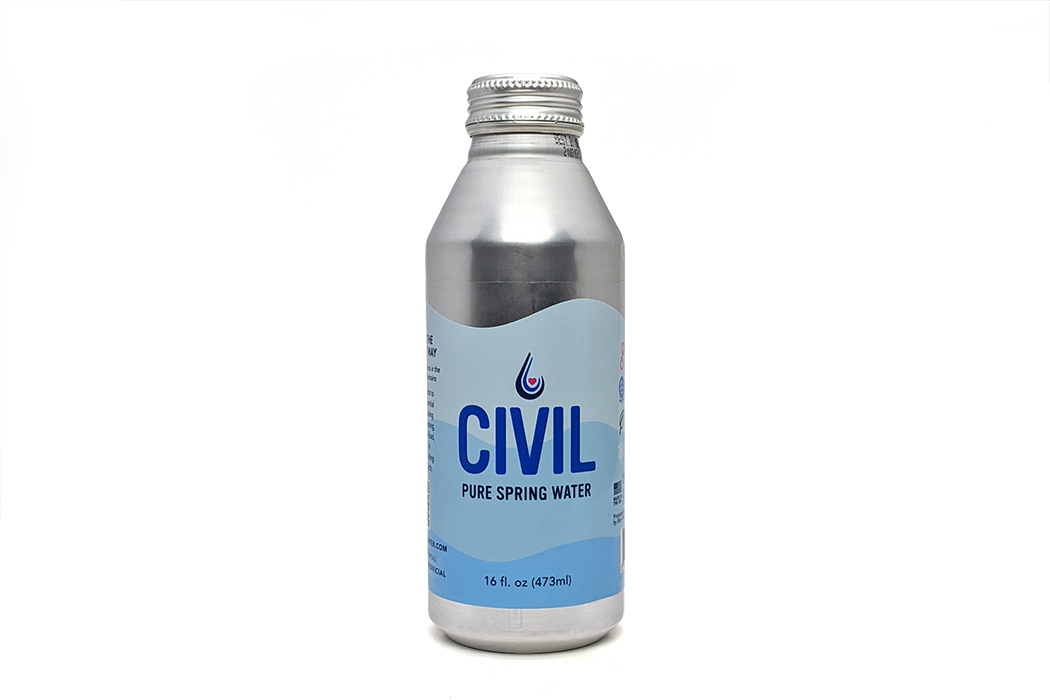It makes up around 60 percent of the human body. It covers more than 70 percent of the Earth’s surface.
And it makes up 100 percent of local Black-owned business Civil Water’s product portfolio.
Good old-fashioned water—in bottles. No bubbles, no flavors, no harmful chemicals, no healthy minerals removed.
So what’s the big deal then? Barely 6-month-old Civil Water sells its liquid to wholesalers or direct-to-consumer only in aluminum bottles. The 12-ounce vessels are available online—and by subscription service—in 24-packs for $43.99.
“We’re in five states on the East Coast,” said Faith Kelley, one of two just-over-20-year-old founders running Civil Water out of a Charlottesville office. “As far as being in large chain stores nationwide, that’s more difficult. Our timeline is about a year or two.”
It’s tough to figure out how well Civil Water is doing relative to its competitors and the overall market, as data on packaged water material are scarce. But anecdotally, boxed and metaled water firms keep pouring out. Liquid Death, JUST Water, Open Water, Proud Source. Along with C’ville’s own, they’re all looking to irrigate a portion of the market.
“What makes Civil Water unique is a lot of people are really connected to the fact that we are local,” Kelley says. “And, only a few of the other aluminum bottled water companies are actually spring water.”
By any measure, aluminum is way more recyclable than plastic. Regulators and the packaged water industry have taken notice. Governor Ralph Northam signed an executive order on March 23 requiring executive branch state agencies to stop trafficking in single-use plastic water bottles, as well as disposable plastic bags, plastic, and polystyrene food containers, and plastic straws and cutlery. The gov gave necessary medical, public health, and public safety plastics some exemptions, but the agencies must phase out all non-medical, single-use plastic and polystyrene by 2025.
“About 9 percent of plastics that get recycled actually get repurposed,” Kelley says. “Aluminum is of course the number one most recycled material.”
Kelley’s right, but it does take some effort to move aluminum down the recycling stream and get it back on shelves. She suggests taking your empty bottles directly to a recycling center, rather than throwing it in your single-stream bin. You have to be “religious about physically taking your items,” she says.
So what’s next for the self-funded, two-employee Civil Water? Kelley and co-founder Neil Wood are confident they can grow with demand—they contract with a third party to bottle their water, which they say is direct from an Appalachian Mountain source, and have plenty of capacity. They’re now looking for funding to expand, Wood says.
“We want to be able to hit the huge retail chain stores to become accessible for everyone around the country,” Wood says. “And then from there, we will offer some smaller options for packaging.”
And what about those bubbles and flavors? “We actually haven’t thought about that,” Wood says. “There is a market for it. But we don’t drink it.”
